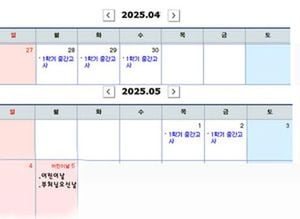Poland's shopping landscape is set for significant changes as the next trading Sunday after April 27, 2025, is scheduled for June 29, 2025. This will be followed by additional trading Sundays on August 31, 2025, and three Sundays in December: December 7, December 14, and December 21, 2025. These dates are crucial for retailers and consumers alike, as they mark the only opportunities for shopping on Sundays, which have been heavily regulated in Poland since 2018.
The restrictions on Sunday trading were implemented on March 1, 2018, when a law came into effect to limit commerce on this traditionally family-oriented day. However, since 2020, the ban has been relaxed for seven Sundays each year, including the last Sundays of January, April, June, and August, as well as the Sunday before Easter and the three Sundays leading up to Christmas. This adjustment aims to balance the needs of consumers and the retail sector while maintaining the sanctity of Sunday as a day of rest.
Under the current regulations, there are 32 exceptions to the Sunday trading ban. Notably, postal outlets can operate on Sundays as long as at least 40% of their revenues come from postal services. Other businesses exempt from the ban include bakeries, ice cream parlors, gas stations, florists, press outlets, and cafes. These exceptions have allowed some businesses to thrive on Sundays, catering to the needs of consumers who seek convenience and access to essential goods.
However, violations of the Sunday trading ban can lead to hefty penalties for entrepreneurs. Fines range from 1,000 PLN to 100,000 PLN, depending on the severity of the infringement. In cases of persistent violations, more severe consequences, such as restrictions on liberty, may be imposed. This strict enforcement underscores the Polish government's commitment to upholding the Sunday trading regulations.
In a notable development, the popular grocery chain Biedronka announced that on the Sunday before the May weekend (April 27, 2025), 3,500 of its stores would extend their hours, remaining open until 10:00 PM. This move reflects a growing trend among retailers to adapt to consumer demand while still adhering to the legal framework governing Sunday trading.
On the other hand, the Żabka chain, which operates numerous convenience stores across the country, allows franchisees to decide their opening hours. This flexibility means that the hours of operation may vary significantly from one location to another, depending on the franchisee's discretion and local consumer needs.
Another significant change in the retail landscape occurred with the amendment to the regulations that took effect on February 1, 2025. This amendment designated December 24 as a mandatory day off for all employees, including those working in retail. Previously, Christmas Eve was a working day for retail employees until 2:00 PM, which often led to long hours and increased stress during the holiday season.
The rationale behind this change is to provide employees with more time to prepare for the holiday festivities with their families. In compensation for this new day off, the government introduced three trading Sundays leading up to Christmas, allowing consumers to complete their holiday shopping without the pressure of a last-minute rush.
Furthermore, the amended regulations stipulate that retail employees cannot work more than two Sundays in December. This provision aims to ensure that workers in the retail sector can enjoy a reasonable work-life balance during the busy holiday season. The changes reflect a growing recognition of the importance of employee welfare in the retail industry.
At the end of December 2024, President Andrzej Duda referred the law concerning free Christmas Eve to the Constitutional Tribunal for subsequent review. His concerns primarily revolve around the introduction of a third additional working Sunday in December for retail employees, which he believes could undermine the intended benefits of the new regulations.
As the debate continues over the future of Sunday trading in Poland, consumers and retailers alike are closely monitoring the situation. The upcoming trading Sundays present an opportunity for retailers to boost sales while providing consumers with much-needed access to goods. However, the balance between consumer convenience and employee rights remains a delicate issue.
In conclusion, the evolving landscape of Sunday trading in Poland reflects broader societal changes and the ongoing dialogue between consumer needs and worker rights. With the next trading Sunday just around the corner, both retailers and consumers are preparing for what promises to be a busy shopping season.




